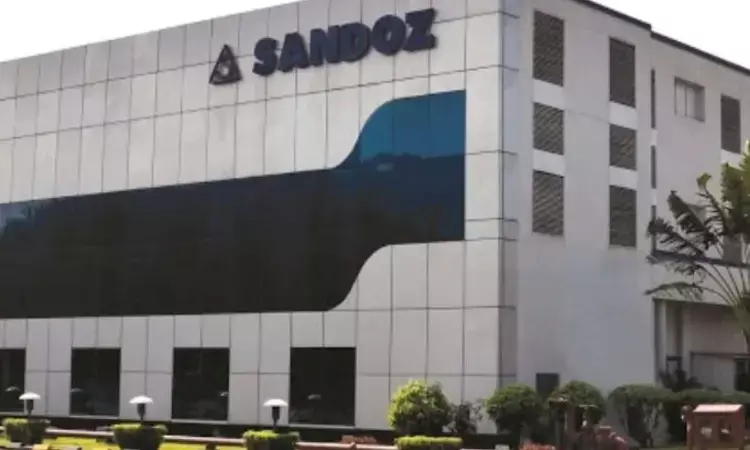- Home
- Medical news & Guidelines
- Anesthesiology
- Cardiology and CTVS
- Critical Care
- Dentistry
- Dermatology
- Diabetes and Endocrinology
- ENT
- Gastroenterology
- Medicine
- Nephrology
- Neurology
- Obstretics-Gynaecology
- Oncology
- Ophthalmology
- Orthopaedics
- Pediatrics-Neonatology
- Psychiatry
- Pulmonology
- Radiology
- Surgery
- Urology
- Laboratory Medicine
- Diet
- Nursing
- Paramedical
- Physiotherapy
- Health news
- Fact Check
- Bone Health Fact Check
- Brain Health Fact Check
- Cancer Related Fact Check
- Child Care Fact Check
- Dental and oral health fact check
- Diabetes and metabolic health fact check
- Diet and Nutrition Fact Check
- Eye and ENT Care Fact Check
- Fitness fact check
- Gut health fact check
- Heart health fact check
- Kidney health fact check
- Medical education fact check
- Men's health fact check
- Respiratory fact check
- Skin and hair care fact check
- Vaccine and Immunization fact check
- Women's health fact check
- AYUSH
- State News
- Andaman and Nicobar Islands
- Andhra Pradesh
- Arunachal Pradesh
- Assam
- Bihar
- Chandigarh
- Chattisgarh
- Dadra and Nagar Haveli
- Daman and Diu
- Delhi
- Goa
- Gujarat
- Haryana
- Himachal Pradesh
- Jammu & Kashmir
- Jharkhand
- Karnataka
- Kerala
- Ladakh
- Lakshadweep
- Madhya Pradesh
- Maharashtra
- Manipur
- Meghalaya
- Mizoram
- Nagaland
- Odisha
- Puducherry
- Punjab
- Rajasthan
- Sikkim
- Tamil Nadu
- Telangana
- Tripura
- Uttar Pradesh
- Uttrakhand
- West Bengal
- Medical Education
- Industry
EMA accepts marketing authorization applications for proposed biosimilar Denosumab: Sandoz

Denosumab is a human monoclonal antibody designed to bind to the RANKL protein, an activator of osteoclasts (cells involved in breaking down bone tissue).
Basel: Sandoz has announced that the European Medicines Agency (EMA) has accepted the marketing authorization applications (MAA) for proposed biosimilar denosumab for regulatory review.
The two applications include all indications covered by the reference medicines Prolia (denosumab) and Xgeva (denosumab), respectively, for treating a variety of conditions, including osteoporosis in postmenopausal women and in men at increased risk of fractures, treatment-induced bone loss, prevention of skeletal related complications in cancer that have spread to the bone, and giant cell tumor of the bone.
“Sandoz is one of the first to have its applications for a proposed biosimilar denosumab accepted by the EMA. If approved, this has the potential to provide people living with osteoporosis and cancer of the bone or bone metastasis access to a cost-effective and high-quality treatment option.” said Florian Bieber, Development Platform Head Biopharmaceuticals and Chief Medical Officer, Sandoz. “This news follows the recent application acceptance by the US Food and Drug Administration and supports our continued commitment to providing expanded access to life-changing treatments, while also helping over-burdened healthcare systems generate savings.”
Denosumab is a human monoclonal antibody designed to bind to the RANKL protein, an activator of osteoclasts (cells involved in breaking down bone tissue). By binding to and inhibiting RANKL, denosumab decreases the production and activity of osteoclasts, resulting in a reduction of bone loss, and subsequently the likelihood of fractures and other serious bone conditions.
Approximately 500 million men and women worldwide may be affected by osteoporosis, which causes 8.9 million fractures annually – or one fracture every three seconds. By 2050, hip fractures are projected to increase by 240% in women and 310% in men compared to 1990. Prevalence of skeletal related complications in cancer is estimated to be as high as 63% for breast cancer, 59% for lung cancer and 52% for prostate cancer. Skeletal related complications in cancer are associated with loss of mobility and social functioning, reduced quality of life, increased health care expenditure and worse survival.
The EMA applications are based on a comprehensive analytical and clinical data package, comprised of data from a Phase I PK/PD similarity study in healthy volunteers and the integrated Phase I/III ROSALIA study. The data package confirmed the denosumab biosimilar matches the reference medicine in terms of pharmacokinetics, pharmacodynamics, efficacy, safety, and immunogenicity in the respective study populations; and contributes to the demonstration of similarity, which is the basis for use in all indications for which Xgeva and Prolia are approved.
Ruchika Sharma joined Medical Dialogue as an Correspondent for the Business Section in 2019. She covers all the updates in the Pharmaceutical field, Policy, Insurance, Business Healthcare, Medical News, Health News, Pharma News, Healthcare and Investment. She has completed her B.Com from Delhi University and then pursued postgraduation in M.Com. She can be contacted at editorial@medicaldialogues.in Contact no. 011-43720751


